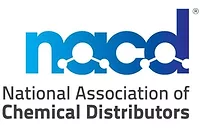Chemical Security, Freight Rail Reform, and Increased Regulations

realrocking, Creatas Video+, via Getty Images
High-quality chemical products are essential to our daily lives and the success of countless industries. In fact, the chemical industry is responsible for more than a quarter of the U.S. gross domestic product (GDP).
The Alliance for Chemical Distribution (ACD) members not only play an integral role in this $27 billion industry, but we have the deep expertise needed to safely and reliably process, formulate, re-package, warehouse, and transport these high-quality chemical products across the nation. ACD members are proud to support the paint and coatings industry, with more than 60% of our members engaged in selling the products and services that paint and coatings professionals rely on.
The chemical distribution industry and the industries we support are more diversified, global, and connected than ever before, and we all rely on commonsense policy to ensure the security, effectiveness, and competitiveness of the industry today and in the years to come.
As ACD prepares for its annual Washington, D.C. fly-in next month, it gives us the opportunity to reflect on the legislative and regulatory priorities that are central to the growth of the chemical distribution industry and the success of our partners, including paint and coatings professionals. ACD is always looking ahead to ensure our partners are always informed, always connected, and always prepared to tackle the challenges of today and tomorrow.
Free-Trade Programs Advance the Strength of the U.S. Economy
While our nation simultaneously grapples with ongoing supply chain challenges and rising inflation, American businesses do not have the support of critical free-trade programs, such as the Generalized System of Preferences (GSP) and the Miscellaneous Tariff Bill (MTB). The expiration of these two trade programs has adversely impacted the ability of U.S. companies to compete globally and supply the nation with materials that are no longer manufactured domestically.
The GSP is one of the most effective trade preference programs, designed to reduce prices for American importers and promote economic development in developing nations. The program gives the Office of the United States Trade Representative (USTR) the authority to provide non-reciprocal, duty-free tariff treatment on certain imported components, parts, or materials from developing nations. However, with the program’s lapse, nearly 5,000 chemical products are subject to pricey tariffs, which have increased overall prices for distributors and their customers. These costs are ultimately passed onto consumers.
Similarly, the MTB program offers temporary reduction or suspension of duties on certain U.S. imports that are not domestically manufactured. For years, this program has kept chemicals and chemical products from being unnecessarily expensive. Unfortunately, the chemical distribution industry has faced hundreds of millions in additional tariffs after Congress failed to renew the program in 2020. If both programs remain expired, it will have greater economic impacts on the industry, leading to loss in sales and jobs.
Since both programs expired in 2020, ACD has called for the full, retroactive renewal of these trade programs to enhance access to thousands of chemical products, while also keeping costs down for industry and consumers alike. Luckily, Representative Debbie Wasserman Schultz (D-FL-25) introduced legislation to retroactively renew and extend the GSP program through 2029. Congress can enhance American companies’ ability to grow their business and workforce, all while ensuring our competitiveness in the ever-increasing global economy by swiftly passing this bill and considering similar legislation that would also renew the MTB program.
Reliable Ocean Shipping and Rail Services Essential for Chemical Distribution
Across the nation, businesses large and small depend on smooth transport of chemicals and chemical products by ocean shipping and rail.
Amid escalating tensions in the Red Sea and the ongoing Panama Canal drought, American businesses are wary of another shipping supply chain crisis. ACD members and businesses have already seen disruptions impact shipment times and costs, and we have been monitoring the implications on the efficient and economic transport of essential chemicals. ACD members are experiencing spot rate increases, lack of communication among carriers about their shipments, and the creation of new surcharges. In the coming months, it will be critical that the Federal Maritime Commission (FMC) be vigilant of ocean carriers’ practices and use its authority to address unreasonable surcharges and improve data transparency.
The industry also relies on safe and efficient rail service to connect us with our customers, like paint and coatings businesses.
Last year’s devastating train derailment in East Palestine, Ohio, directed the public eye to the underlying issues within the freight rail system that have contributed to a significantly reduced workforce and a serious deterioration in service. Comprehensive reforms to the rail system are long overdue. Inadequate service has delayed deliveries of essential chemicals for our members and their customers, placing burdensome costs on businesses at a time of high inflation and labor shortages.
Competition and fairness in our freight rail system are critical to ensuring more timely and efficient deliveries and reducing the costs and wastefulness across the system. That’s why ACD is calling on Congress to pass commonsense freight rail reforms to address the operational challenges, training and inspection requirements, train length, enhanced safety measures, and infrastructure improvements. ACD supports legislative efforts to promote greater freight rail safety, including the Railway Safety Act, which would bring measured and bi-partisan safety reforms to the industry, and supports actions to promote an effective Surface Transportation Board (STB).
Chemical Security Critical to National, Economic Security
Chemical security is national security. For more than 15 years, our industry had the tools needed to protect our nation’s high-risk chemical facilities and their surrounding communities from a range of threats through the successful Chemical Facility Anti-Terrorism Standards (CFATS) program. Unfortunately, Congress failed to reauthorize this critical program in July 2023. Despite near-unanimous support in both chambers of Congress, one Senator blocked the passage of the reauthorization. More than nine months later, over 3,000 chemical facilities have had to manage their physical and cyber security on their own, without the partnership of the U.S. Department of Homeland Security (DHS) or access to the terrorist-screening database.
The CFATS program provides invaluable information, resources, and support to chemical facilities across the nation. This includes building collaborative relationships with local law enforcement and responders prior to a potential incident. This collaboration not only gives local law enforcement an understanding of facility layout and its hazards, but also maintains appropriate equipment and training.
ACD has consistently warned Capitol Hill about the consequences of this program’s continued lack of reauthorization. Without this program, the industry cannot make the strategic investments needed to protect these high-risk facilities from potential acts of terror, cyber-attacks, and more, placing businesses, workers, and communities at risk. It’s time for Congress to immediately reauthorize this important and successful program before it’s too late.
Regulatory Burdens on Small Businesses
Another issue that ACD is monitoring closely is the constantly changing regulatory landscape, which affects ACD members and our customers alike. Year after year, regulatory agencies review and update their rules and regulations, especially with new administrations taking over. These updates can be complex, and companies of all sizes can find it difficult to understand how these changes impact their businesses.
In recent years, there has been a growing number of regulatory burdens placed on the chemical distribution industry. In a recent survey conducted by the American Chemistry Council (ACC), 86% of chemical manufacturers reported the overall level of regulatory burden has risen, particularly at the federal level, and they expect the volume of new regulations to rise even further. Additionally, the survey found that over the past year, 65% of companies have been negatively impacted due to government delay in making a regulatory decision or acting on a rulemaking.
This uncertainty will hit ACD members and their customers especially hard when it comes to the U.S. Environmental Protection Agency’s (EPA) final rulemaking on the Risk Management Program (RMP). For years, the RMP has been a success story, preventing chemical accidents and improving community preparedness and partnerships. The recent decision by the EPA to expand regulations for those already in compliance will undoubtedly place additional financial strain on businesses when they can least afford it. Instead of imposing complex, new requirements that will create additional confusion, the EPA should dedicate its efforts to chemical facilities that are non-compliant to ensure all facilities understand their safety and environmental regulatory obligations. By implementing this final rule, the EPA risks facilities de-funding critical and proven mitigation resources to finance these new requirements.
The reinstitution of the Superfund tax on 42 chemicals and chemical products is also far-reaching, and it will inevitably affect ACD businesses and our customers. Compliance with this new tax is a huge regulatory and financial undertaking for companies across the nation. While ACD was pleased to see the Internal Revenue Service (IRS) extend its penalty relief of the Superfund tax through 2023, we have repeatedly urged the agency to ease the tax burden and clarify the statute for its members that are making good faith efforts to be compliant. ACD supports legislation to repeal the Superfund excise tax on chemical substances.
Over the last few years, ACD has also worked closely with Congress on revisions to the Toxic Substances Control Act (TSCA) and supported the passage of the Frank R. Lautenberg Chemical Safety Act, which made significant improvements to the outdated system of chemical management. However, we have serious concerns over the continued astronomical TSCA fee hikes, particularly on small businesses and their supply chain partners like those in the paint and coatings industry. ACD is alarmed with the EPA’s Regulatory Impact Assessment, which significantly underestimates the number of entities impacted by the fee increase. ACD has called on the EPA to justify these fee increases with adequate data, to prioritize fiscal predictability, and to strengthen protections for small businesses through fee caps and other initiatives.
An additional regulatory issue that impacts our partners in the paint and coatings industry is the Occupational Safety and Health Administration’s (OSHA) final rulemaking on the Hazard Communications Standard (HCS). Revisions to the HCS have a huge and largely adverse impact on ACD members and their suppliers and customers. The recent decision to change safety data sheets and labels for hundreds or even thousands of chemical products is a major undertaking and will place significant administrative pressure on chemical distributors without increasing worker safety. OSHA is expanding the scope of the HCS and adding needless complexity and liability to the system. The ACD has previously urged the agency to reconsider.
The onerous regulations from multiple agencies impose excessive and burdensome costs on businesses of all sizes, particularly at a time when many cannot afford it. ACD is taking serious steps to examine the impact of these regulations to ensure our members, and their customers, are compliant and supported. To help us achieve this and to further enhance our overall regulatory expertise, ACD developed RegClear, a series of guided videos designed to help members navigate the ever-changing regulatory landscape. More on these resources can be found here.
Despite these regulatory changes and tough legislative issues before the industry, we are optimistic about what’s to come. The important role of the chemical industry was re-affirmed during the pandemic after the federal government recognized it as an essential industry. It’s now time to further support this industry by championing the businesses that deliver the products that are fundamental to our daily lives.
Our industry is increasingly global and connected. The challenges faced by the sector will inevitably trickle down to our partners and their customers. That’s why the administration and Congress must support commonsense policies that reinstate the CFATS program and critical free-trade programs, address freight rail service challenges, and reduce the regulatory burden on small businesses. By prioritizing these issues, we can strengthen our economic and national security in the years to come.
For more information, click here.
Looking for a reprint of this article?
From high-res PDFs to custom plaques, order your copy today!








